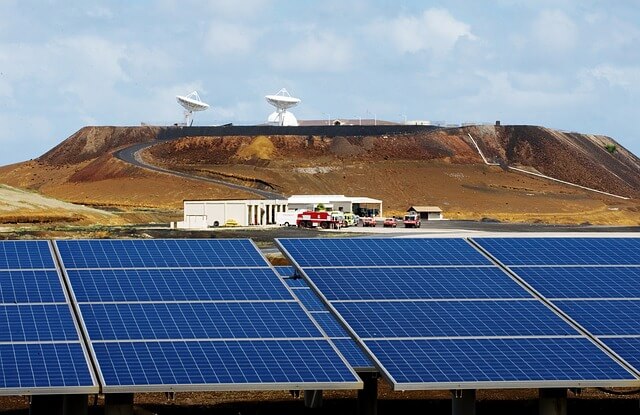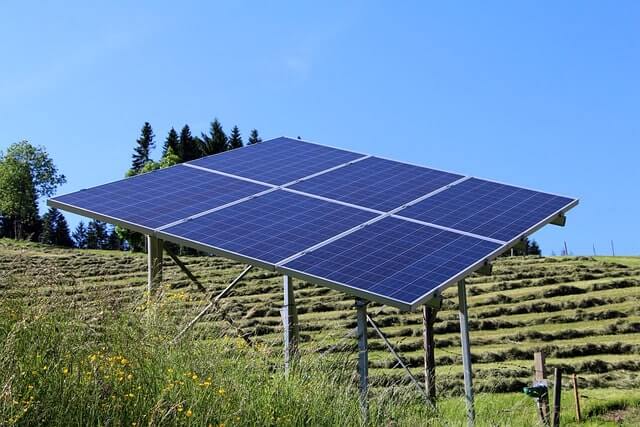Welcome!
Welcome to Renewables Today, where the brilliance of solar energy illuminates your journey towards a sustainable future. In this site we offer insightful articles, empowering solar calculators, and invaluable resources designed to illuminate your path towards renewable energy solutions. Join us in embracing the radiant possibilities of solar energy, as we embark on a journey to redefine the way we power our world.
Why solar energy?
Solar energy offers a plethora of benefits, making it an attractive choice for powering our world. Firstly, it’s abundant and inexhaustible, drawing from a virtually limitless source—the sun. Secondly, it’s environmentally friendly, producing electricity with zero emissions, thus mitigating climate change and reducing our carbon footprint. Additionally, solar energy systems are versatile, scalable, and increasingly cost-effective, making them accessible to a wide range of applications, from residential rooftops to large-scale power plants.
Alongside its environmental advantages, solar energy offers compelling financial benefits for its owners. Through incentives like tax credits and net metering, solar adopters can enjoy substantial savings on their energy bills, often offsetting the initial investment in a relatively short time.

OUR MISSION
Renewables Today is dedicated to empowering individuals and businesses with comprehensive resources and tools to navigate the world of solar energy effectively. Through detailed and easy-to-read articles, we strive to provide essential knowledge to our audience on solar energy, solar panels, various aspects of solar technology and solar finance.
Our commitment extends beyond information dissemination, as we recognize the importance of practical assistance in decision-making. That’s why we offer a suite of calculators designed to simplify the process of estimating solar panel requirements, system sizes, installation costs, payback period and financial returns.
By combining informative content with practical tools, Renewables Today aims to demystify solar energy, enabling homeowners and business owners to make informed financial decisions towards a sustainable and cost-effective energy future.

Major Renewable Energy Sources

Solar energy
Solar energy is a clean and renewable source of electricity that uses photovoltaic cells to capture the sun’s energy. It’s affordable, versatile, and plays a crucial role in the shift towards sustainable energy.

Wind energy
Wind energy is a sustainable and clean source of electricity generated by harnessing the power of wind through turbines. It has a wide range of applications, from powering homes and businesses to providing energy for transportation and other uses.

Hydropower
Hydropower is clean and renewable electricity generated by using moving water to power turbines. It’s versatile and has no emissions, making it an eco-friendly alternative to traditional energy sources.
Frequently asked questions (FAQs)
Solar energy is renewable energy that is generated by harnessing the power of sunlight using solar panels. These panels contain photovoltaic cells that convert sunlight into electricity.
Solar panels work by capturing sunlight and converting it into electricity through a process called the photovoltaic effect. When sunlight strikes the solar cells, it creates an electric field that generates direct current (DC) electricity.
.
The cost of a solar energy system can vary depending on factors such as the size of the system, quality of materials, location, and installation complexity. On average, residential solar energy systems in the United States can range from $10,000 to $30,000 before incentives. However, it’s essential to consider long-term savings on electricity bills and available incentives, such as tax credits and rebates, which can significantly offset the upfront costs of installing a solar energy system.
Solar panels are designed to be durable and can last for several decades. On average, solar panels have a lifespan of 25 to 30 years or more. While the performance of solar panels may degrade slightly over time, most reputable manufacturers offer warranties guaranteeing that panels will still produce a certain percentage of their original output after 25 years.
Various incentives promote solar panel installation, including the Federal Investment Tax Credit (ITC), offering up to 30% deduction from federal taxes. States and local governments often provide rebates, grants, and net metering programs, allowing credits for excess electricity. Solar Renewable Energy Certificates (SRECs) and property tax exemptions further incentivize adoption, making solar energy accessible and affordable.
Yes, solar panels can increase the value of your home. Studies have shown that homes equipped with solar energy systems tend to sell for a premium compared to non-solar homes. Additionally, solar panels can enhance the attractiveness of a property to potential buyers, as they offer long-term energy savings and environmental benefits.
Solar panels require minimal maintenance. Regular cleaning to remove dirt and debris, checking for shading, and periodic inspections by a technician ensure optimal performance. With proper care, solar panels can efficiently generate clean energy for many years.
Before investing in a solar energy system, consider several factors. Evaluate your property’s solar potential, including available sunlight and roof orientation. Assess your energy needs and consumption patterns to determine the appropriate system size. Research financial incentives, such as tax credits and rebates, to offset installation costs. Additionally, consider the upfront investment versus long-term savings on electricity bills to make an informed decision about the return on investment.
